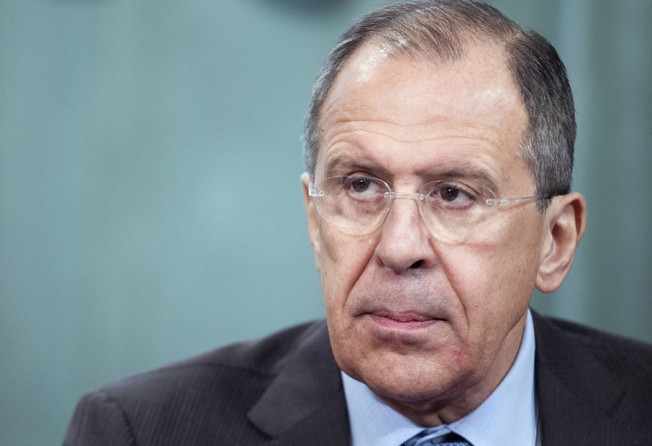Shared concerns mask China's unease over Russia's action in Ukraine
Raffaello Pantucci says both are wary of protests that lead to revolution

Various Russian media outlets have loudly and repeatedly declared that China supports Moscow's view on Ukraine. Recently, in an interview on Russian state television, Foreign Minister Sergey Lavrov characterised China as "our very close partners" with whom he has no doubts.
On the face of it, this interpretation is accurate, but the reality is far more complex, with China uneasy about Russia's actions though it may share Moscow's concerns.
For all the bombast in its Pacific seawaters, China remains largely a status-quo power that sees advantage in letting the current global order proceed along its natural trajectory.
For policymakers in Beijing, this is a path that ends with China atop a constellation of new and old power centres from the UN Security Council to the G20 and BRICS.
China can see its economic might and physical size is an overwhelming one that current global trends favour. The question is how to manage this rise in a smooth manner so as to ensure the Communist Party can maintain supremacy in this complicated world.
Russia's actions in Ukraine do little to smooth this path. In fact, they cause chaos and instability in a number of key Chinese markets, from Russia to Europe, as well as stirring up concerns in adjacent Central Asia.
The former Soviet states worry about Russia's long-term intent and implications to them of sanctions, while European markets are in turmoil as they try to figure out how to disentangle themselves from their Russian interests.
All of which will doubtless have a knock-on effect on Chinese markets, something that might damage the already slowing economic growth.
And China does not look favourably on people recognising separatist states. China fears the dangerous precedent that has been set. Previously, when Russia carried out similar behaviour in Georgia, in 2008, China was clear in using the Shanghai Co-operation Organisation to block a call of support for Russia's actions. But behind all this, there is also a sense of agreement with Russia's actions and thus China has been less vocal in expressing itself on Ukraine.
These are captured in an attentive reading of Lavrov's comments. As he put it: "Our contacts with Chinese partners have shown that they not only understand the lawful interests of Russia in this entire affair but that we have the identical understanding of the initial causes of the current deep crisis in Ukraine."
This is a nuanced comment that highlights how China recognises the validity of Russian concerns, but does not express its own views of Russian actions. Furthermore, it captures a highly important aspect where China and Russia do agree, and that is the danger of public protests that culminate in the overthrow of a government.
Both countries were appalled at the chaos stirred up by the "colour revolutions" in Ukraine, Georgia and Kyrgyzstan and have looked on unhappily as the West has watched the Arab world implode in response to public protests during the Arab spring - something emphasised in particular in Syria.
Ukraine today is merely the latest iteration of this trend, and it is one that both China and Russia fear might lead to repercussions at home. This fear, added to China's unwillingness to turn completely against Moscow, will ultimately bind the two countries together and will see China continuing to play a largely observer role in events in Ukraine.
For outside observers, the lesson is an important one. China is a passive ally of Russia over Ukraine, something borne out of an ideological concern rather than an appreciation of the Russian heavy-handed response.
This difference is key to note if the West is going to find a way to get China to grow into a bigger role internationally. China sees the route to a brave new world not through chaos and overthrow, but steady growth and stability; a global peaceful rise.
Raffaello Pantucci is a senior research fellow at the Royal United Services Institute